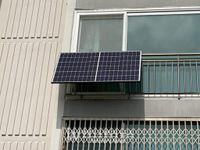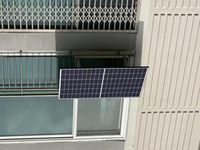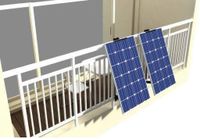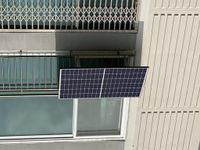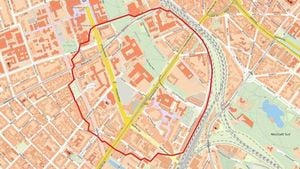Gwangju Metropolitan City has made a significant move towards promoting renewable energy by expanding its mini solar power subsidy project to include detached houses, in addition to apartments and other multi-family units. Announced on April 9, 2025, this initiative aims to support households in reducing their carbon footprint as part of the city’s commitment to achieving a carbon-neutral society by 2045.
Previously, the mini solar power supply support project was limited to multi-family residences, but this year, Gwangju City has broadened its eligibility criteria, allowing homeowners of detached houses to apply. This expansion is a response to the growing interest in solar energy solutions among residents, particularly as the city looks to enhance its sustainability efforts.
To make the installation of mini solar power systems more accessible, Gwangju City has reduced the self-payment rate from 30% to 20%. This means that households will only need to cover 20% of the installation costs, which range from 840,000 to 950,000 won (approximately $700 to $800). With the city providing an 80% subsidy, the out-of-pocket expense for applicants will be between 168,000 and 190,000 won (around $140 to $160).
Moreover, if multiple households within a multi-family unit participate, they can receive an additional discount of up to 100,000 won per household. This could lower the self-payment to as little as 68,000 to 90,000 won (about $57 to $75), making it more feasible for families to adopt this green technology.
The mini solar power systems, which have a capacity of 390 to 445W, are designed for easy installation in small spaces. They consist of solar modules, panels, balcony fixtures, and small inverters. Once installed, these systems can generate approximately 45kWh of electricity per month. For context, this output is equivalent to the electricity consumption of a 900-liter refrigerator, which typically uses about 46kWh per month.
Considering that the average monthly electricity usage for a typical four-person household is around 307kWh (approximately 69,000 won or $58), the installation of these mini solar systems can lead to savings of about 8,000 won (around $7) on monthly electricity bills. Over time, these savings can significantly contribute to lowering household expenses, making the investment in solar energy not only environmentally friendly but also economically beneficial.
Applications for the subsidy will be accepted on a first-come, first-served basis until November 30, 2025. Interested citizens can apply through a solar power contractor selected by Gwangju City. To qualify for the program, homeowners must have a suitable location for installation, such as a well-lit balcony or rooftop. Additionally, residents of multi-family buildings must obtain consent from their management entities to install the solar systems.
Since the program's inception in 2015, Gwangju City has invested approximately 30 billion won (around $25 million) in supporting the installation of mini solar power systems in a total of 5,007 households. This ongoing commitment underscores the city's dedication to fostering a sustainable energy future.
As the demand for renewable energy sources continues to rise, Gwangju's initiative reflects a broader trend in urban areas seeking to combat climate change and promote energy independence. By lowering barriers to entry and providing financial incentives, the city aims to encourage more residents to consider solar energy as a viable option for their homes.
In conclusion, Gwangju's expansion of its mini solar power subsidy project is a proactive step towards achieving a greener future. With financial support and an emphasis on accessibility, the city is paving the way for more households to embrace renewable energy solutions, contributing to a sustainable community for generations to come.
